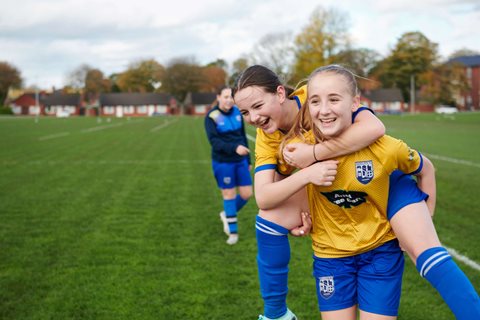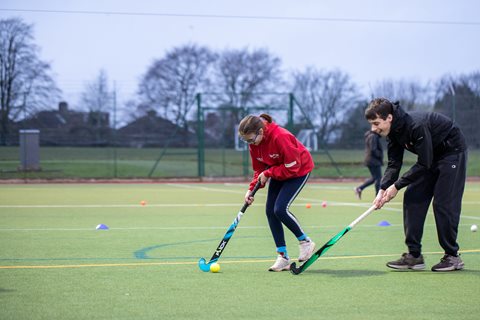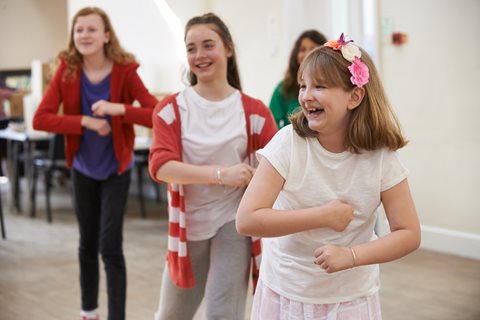Our cookies
We use essential cookies to make our website work smoothly for you. To make sure we're always improving, we'd like to use analytics to track how people use the site. We won't set non-essential cookies unless you give us permission. You can find more information about all the cookies we use in our Privacy and Cookie Policy.
Some cookies are a must for our website to function properly. If you turn off essential cookies, it may affect how you experience our site.
The non-essential cookies we use help us understand how you use our website and make improvements to enhance your experience.
Supporting Young People's Mental Health Through Physical Activity
Everyone has mental health – just as we all have physical health. That means it’s important we look after our mental health and take steps to improve it if need be, just as we would if anything wasn’t quite right with us physically.
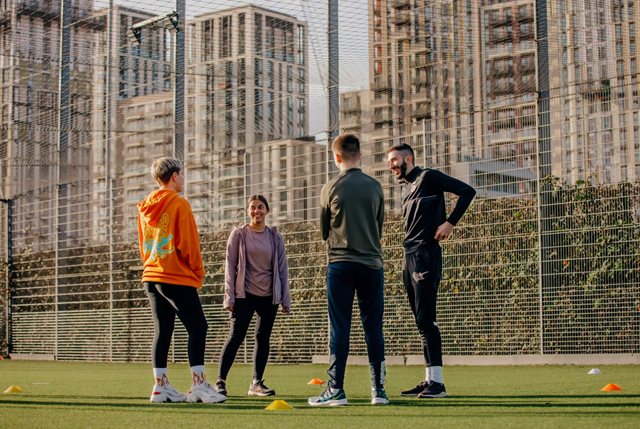
by Carrie Dunn
Since the pandemic, mental health problems have increased in young people.
In 2017, one in nine young people experienced a mental health problem; now it’s one in six – and this increases to one in four for young people aged between 17 and 19 years old.
Research from Mind has shown that sports coaches can really make a difference to young people’s mental health. Of course, coaches don’t have to be experts in mental health, but their relationship with a young person can be crucial to spotting if someone is struggling and can point them to sources of support if necessary.
"A crucial part of supporting young people's mental health specifically is allowing them to choose their own journeys so that they develop both within themselves physically and mentally," says James Durcan, Mind’s lead for physical activity and young people.
Why ensuring young people are happy, healthy and safe is so important to the child-first coaching philosophy
Mind worked with young people to co-design guidance for coaches – and one of the most important elements is also key to a child-first coaching philosophy.
It's really important that we are treating young people as individuals. Often, it's very easy to generalise and to assume certain things about all young people, but actually it's so important that coaches are ensuring that they’re tailoring and personalising both a session but also their support for the young person to their individual needs.
James Durcan Mind's Physical Activity Young People's Lead
"We're all coming from different experiences and facing different challenges. Young people are keen to ensure that they are prioritised as individuals rather than seen as a collective."
That includes involving the young people in the goal-setting process and getting their perspective on what they want to achieve.
"Our young people said quite openly that they had challenges where they entered the session and the coach would assume what they were trying to get out of it," explains James.
"Instead of assuming that they are coming to improve their physique or improve their skills, it's really important that a coach before a session actually speaks to the young people and provides them the opportunity both individually or as a group to set some achievable goals and also to review them.
This 'Pillar Talk' discusses a child's right to develop.
For everyone, their personal best will be different, and what they want to get out of the session will be different, so give them that time to set their goals and then to reflect on that."
James Durcan Mind's Physical Activity Young People's Lead
How coaches can effectively support young people
James adds that young people themselves can often be the best source of information on how to put together coaching sessions that support and empower the individual.
"Flip it and turn to the group, and say, 'Right, let's co-design something. I want to understand what you want to get out of the session, how best can I do that?'
"Young people are really good at creating different ways [to engage] and making them relevant to the sessions."
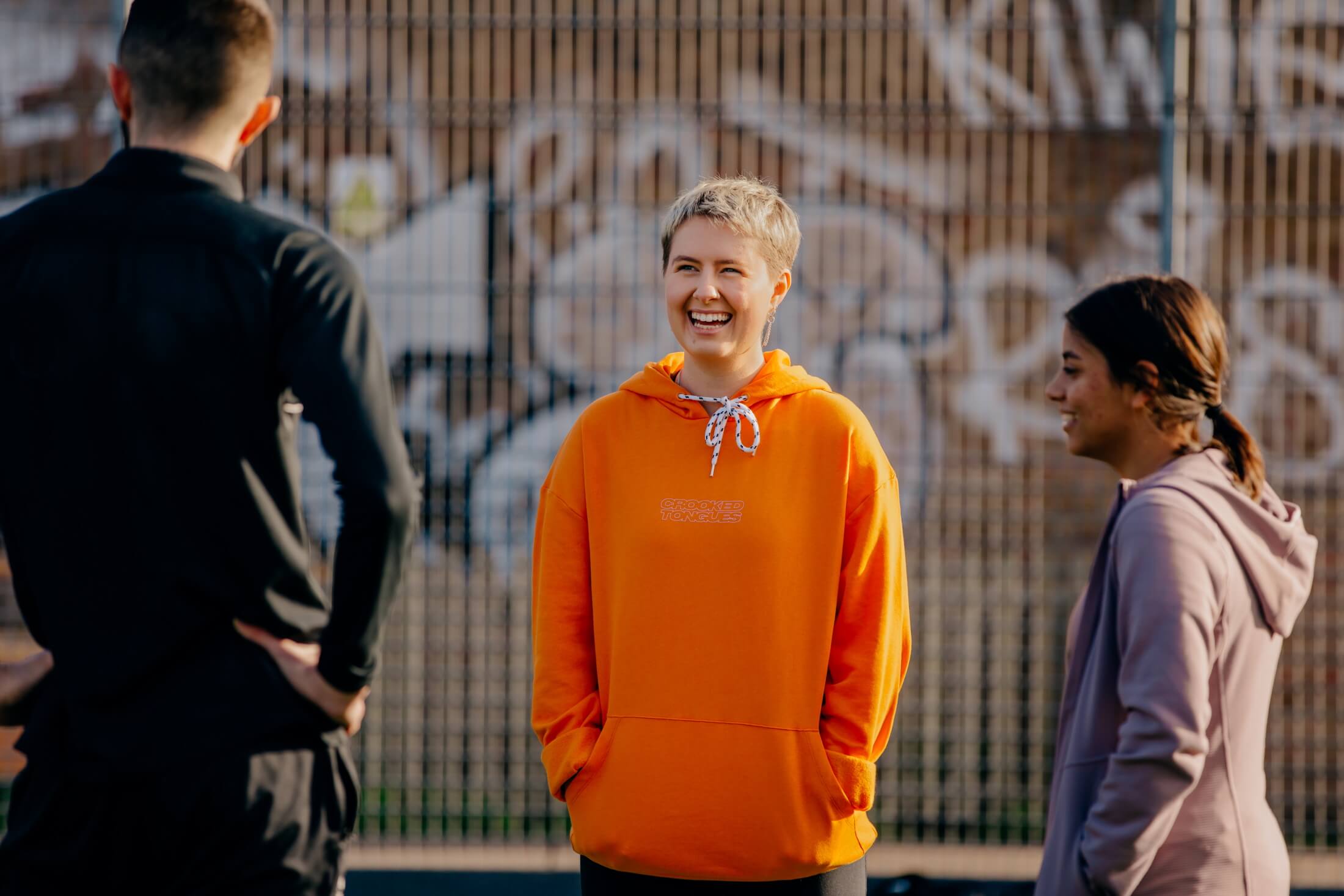
One activity he suggests that coaches could usefully embed in sessions, that is a quick way to check in on how everyone is doing, is getting them to describe how they are feeling using an emoji.
Gathering Great Feedback
Use our free downloadable feedback form to gather feedback from your participants that will help you understand their perspectives and design and deliver sessions that meet their needs.
FREE DOWNLOAD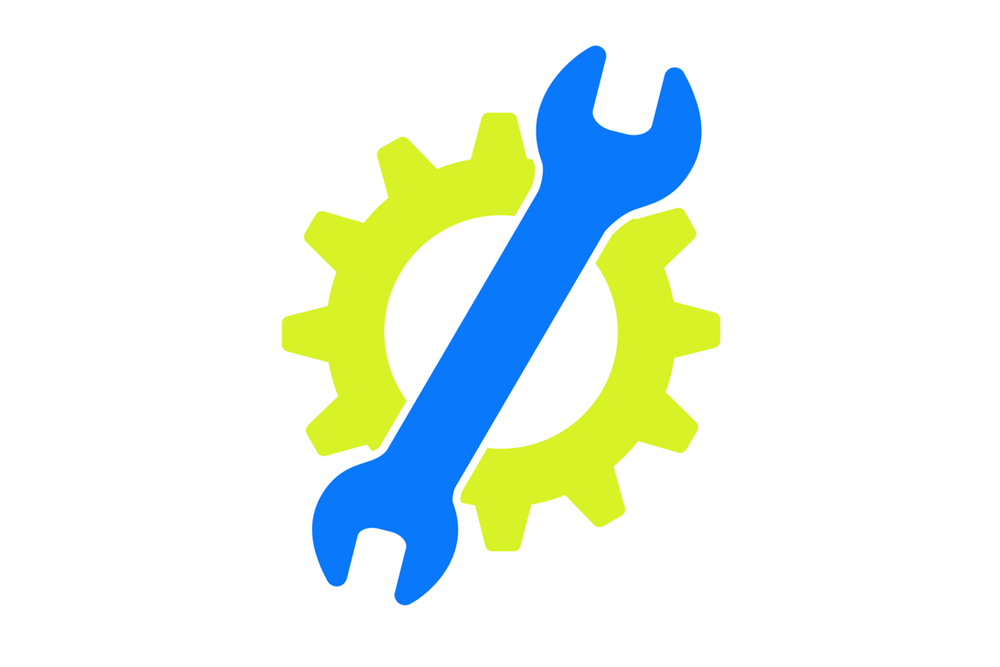
Support and training for coaches
If coaches want to find out more, Mind offer an eLearning course on mental health awareness for sport and physical activity via UK Coaching. It looks at how sport and physical activity can be used for good and can support people's mental health and well-being, but also explores at some of the potential barriers that young people might encounter, and where coaches can play a role alongside a wider support network to help them.
James is also keen to remind coaches that you need to take care of yourselves as well.
"If you get in an aeroplane, in the safety talk they always say to put your own oxygen mask on first," he observes. "In the same way, when you're supporting young people, it’s absolutely essential that coaches are making sure they’ve supported themselves first – we’ve got to make sure we’re well to be able to support others."
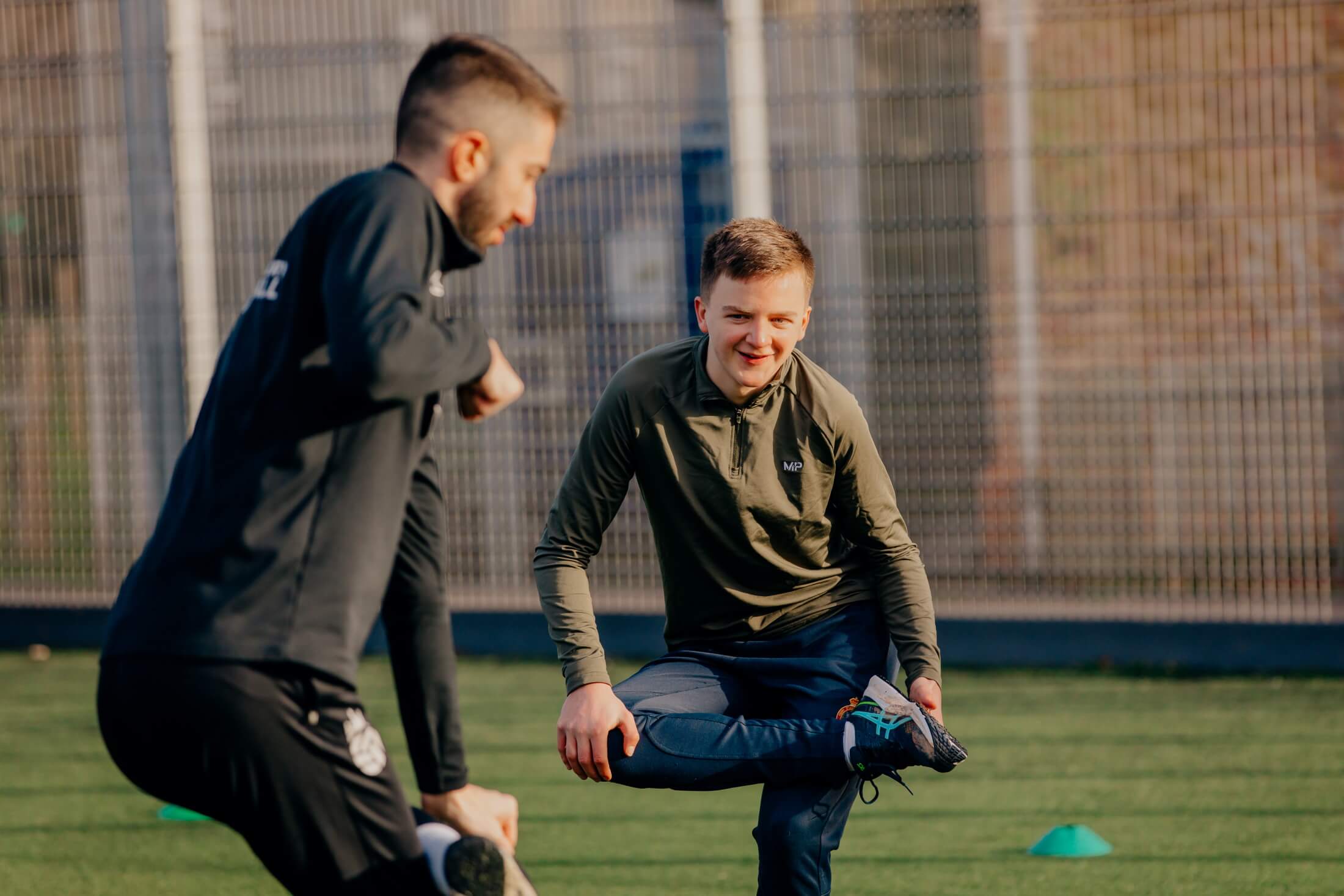
Further support available for coaches
- Mental Health Awareness for Sport and Physical Activity training: Mind’s eLearning course is aimed at everyone who delivers coaching in clubs, community sport and physical activity. The course will help you gain the confidence to be able to support people experiencing mental health problems, and help them to thrive inside and outside of your sessions.
- Supporting young people during physical activity: Coaches, volunteers and leaders play an important role in supporting young people’s mental health when providing physical activity sessions. Working with young people and coaches, Mind have co-produced resources to upskill the workforce. The resources include:
- Lived experience film: River, Paddy and Elsa draw on their lived experience, to share how to support young people in physical activity.
- Young people’s top tips graphic: Young people from Mind’s Steering group co-produced tips to help coaches better support them during sessions.
- Handbook resource for coaches: Online and physical handbook, which contains information on mental health problems that young people experience; how to spot changes in a young person's behaviour, thoughts and feelings; how to check-in and start a conversation; how to signpost to a range of support options and how to look after your own well-being and access support.
Other resources you may like...
About the contributor
James Durcan is the Physical Activity Young People's Lead at Mind. With a focus on supporting young people's mental health through physical activity, he has worked with young people to co-produce resources for the coaching workforce and works with partners to embed a better awareness and understanding of mental health across the physical activity sector.
SHARE THE MOVEMENT
Help spread the word by sharing this website with fellow coaches!

